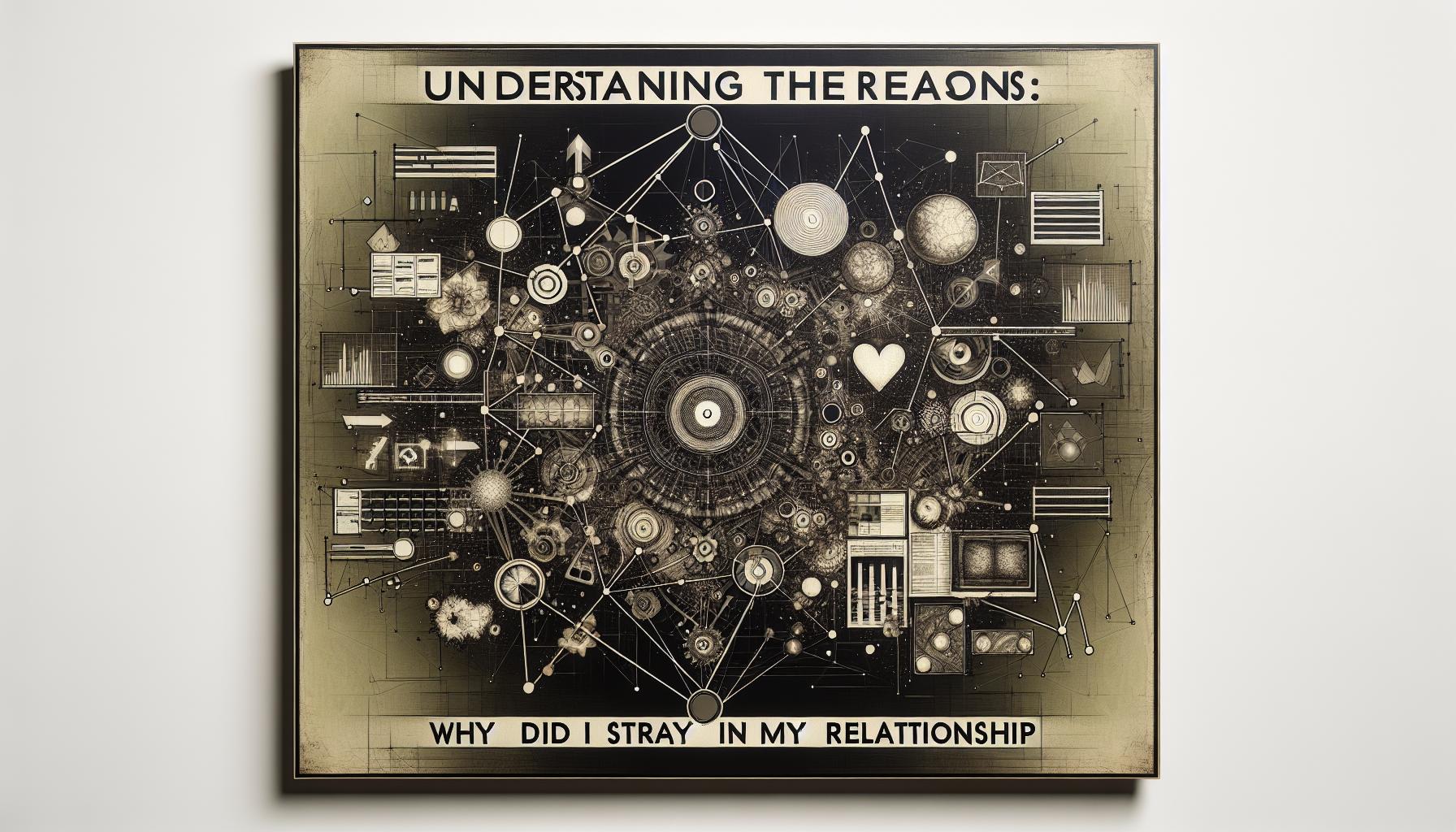
Stumbling down the well-worn path of regrets and guilt, one commonly asked question stands out starkly, “Why did I cheat on my boyfriend?” It’s an inquiry often wrapped in layers of raw emotions, regrettable actions, and navigating the harsh consequences. Simplistic as it sounds, there isn’t a cut and dried answer. Infidelity is akin to a complex mosaic composed of tiny shards of reasoning, which when put together paints an image unique to each relationship.
To dissect and better comprehend this matter, we will be focusing on several key elements that intertwine to answer the question posed. They include, but are not limited to, emotional dissatisfaction, relationship dissatisfaction, changes in priorities, and individual expectations differing from reality. The focus is not to justify or condemn but rather shine a light on the multifaceted reasons that drive a person to cheat.
Unearthing Emotional Dissatisfaction
Among the hushed whispers of excuses, emotional dissatisfaction echoes loudly. It is, unfortunately, a common culprit that nudges girlfriends into the deceptive dance of cheating. The heart yearns for an emotional connection – an intimate bond that weaves two individuals into a single beat. When emotions feel unreciprocated, when the heart feels deprived, an individual may engage in an extra relationship to fulfill that void.
The Hollow Echo of Loneliness
Dressed eloquently as a metaphor, loneliness can often feel like a quiet room filled with boisterous echoes of emptiness. It’s the aching feeling of loneliness within a relationship, despite the outward pretense of happiness, that propels people into the arms of cheating.
Discontent with Current Relationships
Like a disillusioned artist eying their creation with dissatisfaction, sometimes our relationships fail to live up to the ideal image we paint in our minds. As the disillusionment snowballs with time, leading to frustrations and discontent, a person may fall prey to the charm of external affirmations and validation.
Creating a Utopia
Cheating could sometimes be the reckless pursuit of a utopian relationship – a gamble undertaken in the hopes of trading one’s current dissatisfaction with the mirage of a perfect relationship that the outsider seems to offer.
Shifts in Priorities and Focus
As the sands of time meander down the hourglass, our priorities naturally shift and realign. Such an evolution of priorities in a relationship can sometimes lead individuals to valiantly seek outside the confines of their relationship.
Navigating Through Life’s Detours
While a relationship might begin its journey on a common path, there’re detours aplenty. Life has a peculiar way of leading individuals on different routes. When priorities diverge, thereby causing a rift, it sometimes draws us to cheat.
The Clash of Reality and Expectations
Fueling a relationship solely on the diet of expectations is as perilous as walking through a minefield. When reality consistently falls short of expectations, a person may resort to cheating to find solace and satisfaction.
Dreams and Disheartenment
Haunted by the ghosts of unmet expectations, the path from dreams to disheartenment is often a short one. Disappointment breeds discontent. That in turn might coax an individual into finding solace in a relationship outside their own.
Conclusion
Cheating is a convoluted adventure, engineered by a myriad mote of reasons. It isn’t borne out of a singular moment of weakness as much as it’s the result of a cocktail of neglected emotions, long festering dissatisfaction, and unmet expectations. Unraveling the whys of infidelity isn’t about absolving guilt or attributing blame. It’s an exercise to understand, to learn, and eventually to heal.
Frequently Asked Questions
1. Why do people cheat even when they love someone?
People sometimes cheat not because they’ve stopped loving their partner, but due to dissatisfaction, unmet yearnings, or feeling unfulfilled within their current relationship.
2. Is it possible to stop cheating once it has happened?
Yes, it’s possible to stop cheating. It necessitates a great deal of introspection, honesty, communication, and a commitment to mending mistakes.
3. Can a relationship survive infidelity?
While challenging, a relationship can survive infidelity. It requires honest communication, forgiveness, and rebuilding trust.
4. How can you rebuild trust after cheating?
Rebuilding trust after cheating involves open and honest communication, demonstrating reliable behavior, showing empathy, and giving it time.
5. What are some signs of cheating?
Signs of cheating can vary, but common ones include unexplained changes in behavior, secretive tendencies, or unusual detachment.
